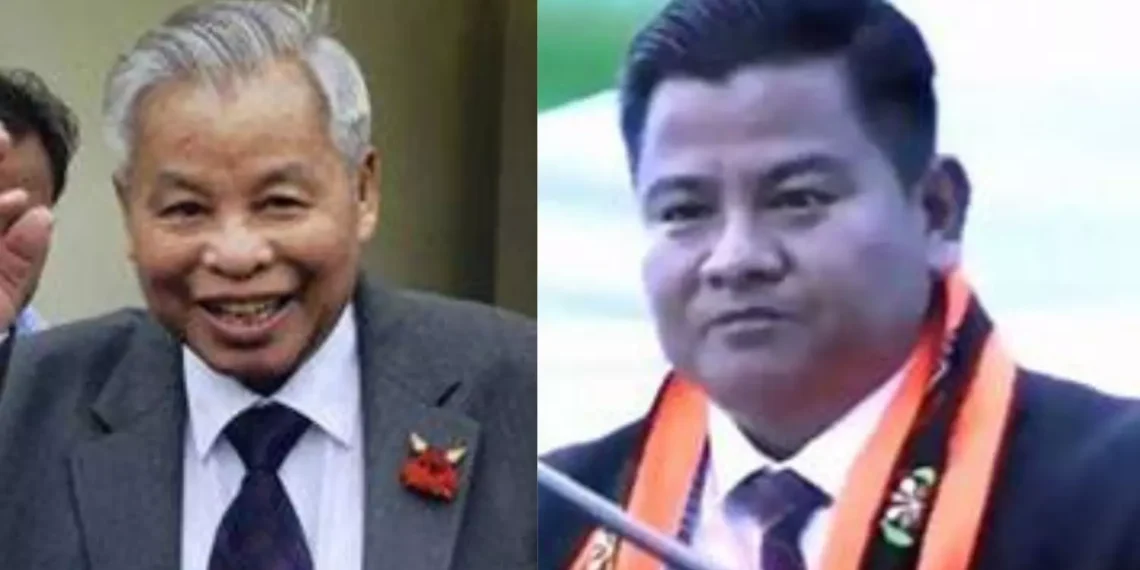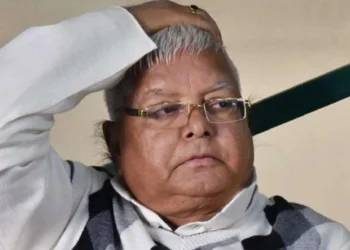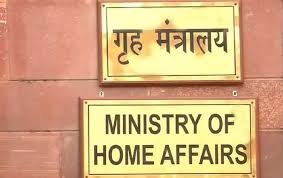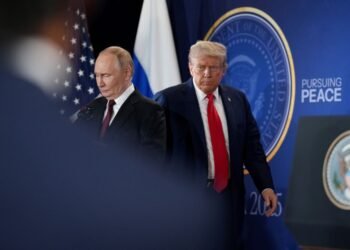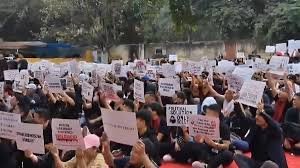BY Navin Upadhyay
April 19, 2025: The National Socialist Council of Nagaland-Isak-Muivah (NSCN-IM), one of the most prominent insurgent groups in Northeast India, has faced a major setback after senior leader Ikato Chishi Swu announced his decision to sever ties with the organization on April 18.
As the son of NSCN-IM’s late co-founder Isak Chishi Swu, Ikato’s exit and his alignment with Myanmar-based Naga rebel leaders Lt. Gen. (Retd.) HS Ramsan and Lt. Gen. Absalom Raman have sparked widespread speculation about the future of the Naga peace process and the unity of the NSCN-IM. This article explores Ikato Swu’s background, his reasons for leaving, and the potential implications of his departure for the Naga movement.
Who is Ikato Chishi Swu?
Ikato Chishi Swu is the eldest son of Isak Chishi Swu, a revered figure in the Naga nationalist movement. Isak, alongside Thuingaleng Muivah and S.S. Khaplang, founded the NSCN in 1980 in opposition to the 1975 Shillong Accord, which they viewed as a betrayal of the Naga cause for sovereignty. Following a split in 1988, the NSCN-IM, led by Isak and Muivah, emerged as the dominant faction and has been engaged in peace talks with the Indian government since 1997.
Isak, a Sumi Naga from Nagaland’s Zunheboto district, was instrumental in shaping the NSCN-IM’s ideological and spiritual framework, emphasizing “Nagaland for Christ” and a vision of Naga self-determination. He passed away in 2016, shortly after the signing of the 2015 Framework Agreement with the Indian government.
Ikato, born during a tumultuous period when his parents were active in the Naga underground movement, was raised largely in “Eastern Nagaland” (Myanmar) due to the demands of his parents’ revolutionary activities. His father’s prominence and legacy placed Ikato in a unique position within the NSCN-IM, where he served as a member of the collective leadership and held roles such as the general secretary of the NSCN-IM’s Church Council (CNC). Despite not holding a top-tier position in the group’s hierarchy, Ikato’s lineage and his vocal advocacy for the Naga cause made him a notable figure within the organization.
Reasons for Ikato’s Departure
Ikato’s decision to leave the NSCN-IM was announced through a hard-hitting statement that criticized the group’s current leadership, particularly General Secretary Thuingaleng Muivah, and accused it of deviating from its founding principles. His grievances can be summarized as follows:
- Corruption and Internal Stagnation: Ikato alleged rampant corruption within the NSCN-IM, claiming that positions in the group’s hierarchy could be purchased with large sums of money. He accused some leaders of running alcohol syndicates and compromising the Naga “national interest” for personal gain. He stated that the “virus of corruption has infected all the organs of the NSCN/GPRN government” due to mismanagement by the top leadership.
- Failure of Leadership: Ikato expressed disillusionment with Muivah’s leadership, asserting that the Naga issue could “never be resolved” under the current setup. He criticized the group for straying from the vision laid out by his father and for failing to advance the Naga struggle effectively.
- Betrayal by the Indian Government: Ikato accused the Indian government of backtracking on the 2015 Framework Agreement, signed in the presence of Prime Minister Narendra Modi. He claimed that after his father’s death, the government shifted from seeking a solution to merely “managing” the Naga issue to maintain the status quo. He further alleged that the government had corrupted NSCN-IM leaders, with some reportedly on the payroll of Indian intelligence agencies.
- Alignment with Myanmar-Based Leaders: Ikato announced his decision to join the NSCN-IM’s Myanmar-based “eastern flank,” led by HS Ramsan (vice-chairman and steering committee member) and Absalom Raman (Deputy Longvibu of the Naga Army). These leaders, based in Myanmar’s Sagaing Division, have operated independently of the NSCN-IM’s Hebron headquarters due to internal differences, particularly with the group’s military chief, Anthony Shimray. Ikato’s move was framed as an effort to “carry forward the Naga struggle” outside the stalled peace process with India.
Ikato reportedly left for Myanmar about a week before his announcement, accompanied by approximately 22–25 NSCN-IM cadres, including his immediate family. His departure followed failed attempts by the Hebron-based leadership to reconcile with Ramsan and Raman through two peace missions.
ALSO READ: New RFK Assassination Records Could Challenge Official Story
Implications for the NSCN-IM and the Naga Peace Process
Ikato’s exit has raised serious questions about the NSCN-IM’s internal cohesion and its ability to maintain credibility among the Naga people. The following points highlight the potential consequences:
- Weakening of NSCN-IM’s Leadership: The NSCN-IM’s leadership, dominated by Tangkhul Nagas from Manipur, including Muivah, has relied on figures like Isak and Ikato to project a unified Naga identity that bridges Nagaland and Manipur. Ikato’s departure, as a Sumi Naga from Nagaland, could erode the group’s legitimacy among Nagas from Nagaland, potentially deepening ethnic and regional divides within the organization.
- Risk of a New Faction: There is speculation that Ikato, along with Ramsan and Raman, may form a new faction, which could further fragment the NSCN-IM. Sources suggest that Ikato, given his lineage, could assume a leadership role, such as general secretary or “Ato Kilonser” (Prime Minister), in such a faction. This would mark the most significant split in the NSCN-IM since the 1988 division that created the NSCN-K (Khaplang) faction.
- Impact on the Peace Process: The Naga peace talks, ongoing since 1997, have been fraught with challenges, particularly over demands for a separate Naga flag and constitution. Ikato’s alignment with Myanmar-based leaders who advocate armed struggle could complicate negotiations, as Ramsan and Raman are known for their hardline stance. His move comes at a time when the Indian government has reportedly reached out to these leaders to bring them into the peace process, making his defection a potential setback.
- Boost to Myanmar-Based Rebels: Ikato’s decision to join the NSCN-IM’s eastern flank, which is allied with the NSCN-K (Ang Mai) faction and has ties to the Myanmar junta through ceasefire-like agreements, could strengthen the Myanmar-based Naga rebels. Reports indicate that these groups have established new camps, including one in Homalin Township, signaling a renewed push for armed resistance.
In response to Ikato’s exit, Thuingaleng Muivah chaired a high-level meeting on April 19, 2025, at his residence in Dimapur, attended by senior leaders like VS Atem, Anthony Shimray, R.H. Raising, and Tongmeth Wangmao. The meeting aimed to project unity, with sources stating that the NSCN-IM remains “intact.” However, discussions about potential reforms in the group’s civil and military setup suggest underlying tensions.
ALSO READ: Special Story: Timber Smuggling in Manipur: Assam Rifles Crackdown Exposes Deep-Rooted Illicit Trade
Broader Context and Challenges
Ikato’s departure must be viewed within the broader context of the Naga struggle, which has been marked by decades of insurgency, factionalism, and elusive peace. The NSCN-IM, founded to oppose the Shillong Accord, has been the largest and most influential Naga group, advocating for a “Greater Nagalim” that includes Naga-inhabited areas across Nagaland, Manipur, Assam, Arunachal Pradesh, and parts of Myanmar. The 2015 Framework Agreement raised hopes for a resolution, but its lack of transparency and slow progress have fueled frustration among Naga leaders and communities.
Ikato’s criticisms resonate with longstanding grievances about corruption and leadership disputes within the NSCN-IM. His allegations of alcohol syndicates and bought positions point to deeper issues of governance and discipline within the organization. Moreover, his move to Myanmar reflects a rejection of the peace process in favor of a more militant approach, aligning with leaders who operate beyond India’s reach.
ALSO READ: BJP MP accuses SC of Inciting Anarchy, Religious Conflict



